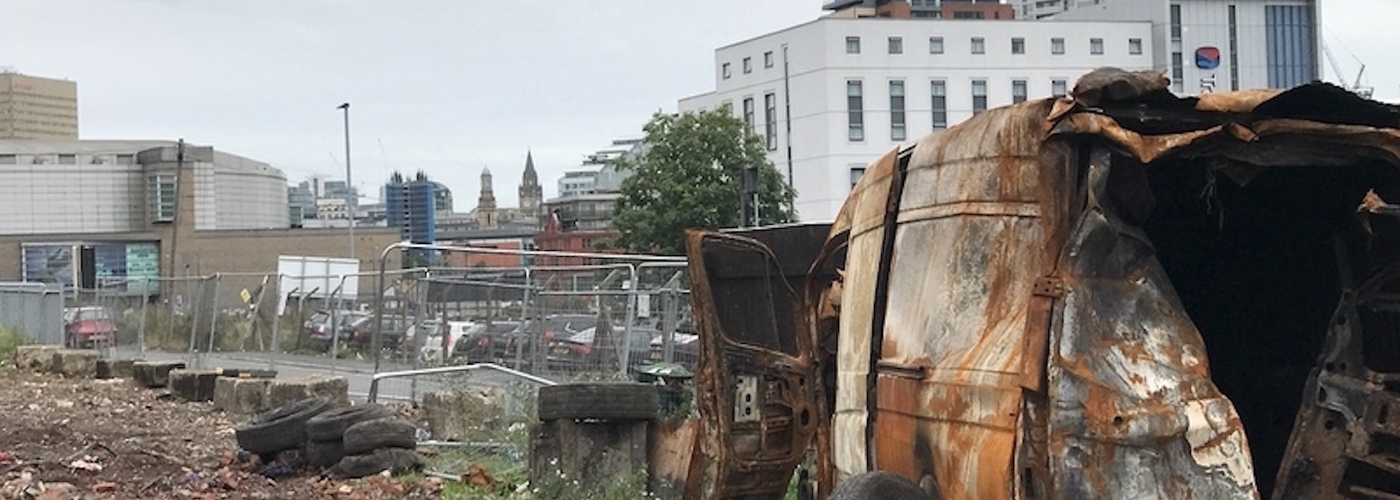Council leader decries "criminal enterprises that have undermined the reputation of the area"
Strangeways, the area of the city known - besides the prison - for being the 'counterfeit capital of Britain', is edging closer towards a much-needed regeneration following the appointment of a team to plan the transformation of the neighbourhood.
Manchester and Salford city councils have appointed a multi-disciplinary team, led by estate agents Avison Young, tasked with drawing up the Strangeways and Cambridge Strategic Regeneration Framework (SRF) to guide the next decade of renewal.
This regeneration framework is a statement of intent that we are committed to realising the untapped value of this neighbourhood
The seven strong team, will include economic analysis, masterplanning, urban and landscape design, heritage, and strategic property advice, is as follows:
- Avison Young – lead consultant
- Maccreanor Lavington – Masterplanning and Urban Design Lead
- Feilden Clegg Bradley – Architecture and Heritage
- Schulze-Grassov – Landscape Design and Public Realm
- Civic Engineers – Movement and Highways
- Useful Projects – Zero Carbon Strategy
- Placed – Community Engagement
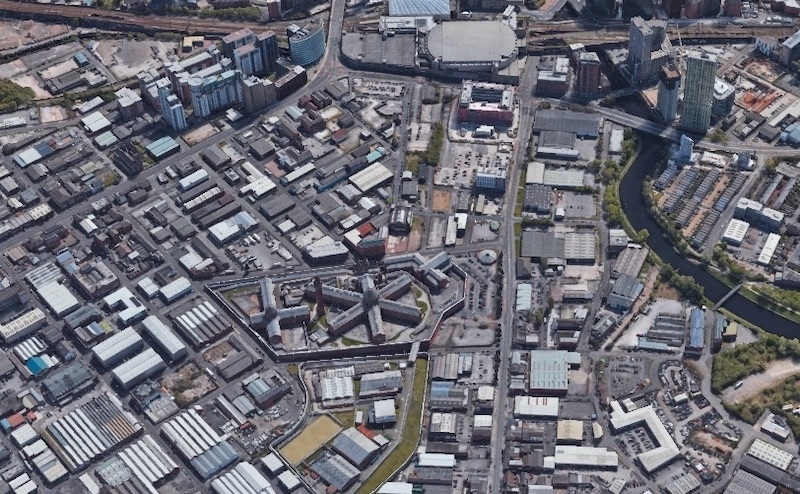
On the appointment, Leader of Manchester City Council, cllr Bev Craig said: “Strangeways is a gateway into our city centre and therefore it is a priority area for investment in the coming years. We know there is huge potential here, and this regeneration framework is a statement of intent that we are committed to realising the untapped value of this neighbourhood.
“Following months of intensive operations between the Council, GMP and other agencies we have worked to remove the criminal enterprises that have undermined the reputation of the area and limited the chance for existing legitimate businesses to prosper.
“We now want to see a plan that supports the area’s existing employment base, whilst also setting out an ambitious low-carbon development programme that will deliver new homes, quality public realm and new commercial spaces that can support businesses to grow and invest in the area.”
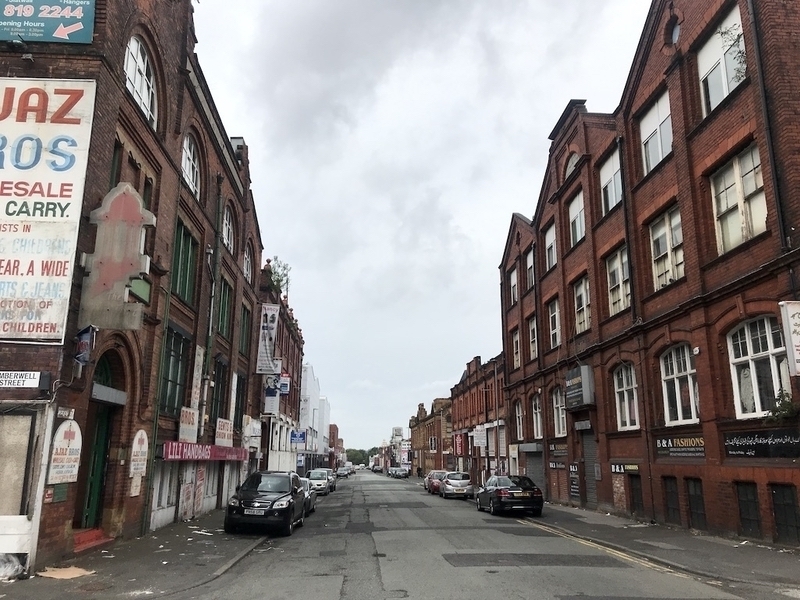
Confidentials editor Jonathan Schofield wrote about the area's ills back in September 2018, when showing a group of Japanese artists around the 'ungentrified' areas of the city.
"The present businesses are usually law abiding and legal despite being seemingly unconcerned by litter issues," he said. "Down around Bury New Road it’s different. This has been dubbed the ‘counterfeit capital of Britain’. In December 2017, police seized three shipping containers of counterfeit goods in one raid alone. Men stand outside the shops here, with shutters down over the windows. The men invite people in to see if they can be tempted to make a purchase; they invited the Japanese group in.
"The shutters are down to stop the prying eyes of the police and the immigration officials. Should word get out that the authorities are prying, those doors are locked double-quick and the store is closed. Any customers left inside have to wait until the all-clear is given. It’s so blatant it’s almost comical, although there’s nothing funny about the criminality these shops fund in trafficking and drugs."
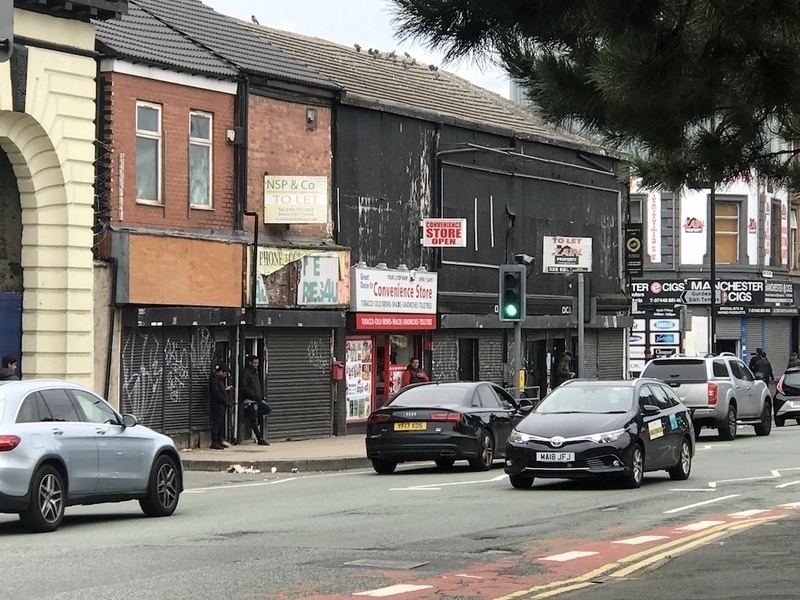
Crackdowns on the counterfeit trade in the area have been of particular focus for Greater Manchester Police in recent years, with the force reporting in July that its Operation Vulcan had seized over 580 tonnes of counterfeit items from a single storage unit on the outskirts of Cheetham Hill, a record haul in UK history and the largest single seizure in Europe in almost two decades. The total loss to the criminal enterprise equating to a staggering £87 million.
Speaking about the raid at the time, Detective Inspector Christian Julien, one of Operation Vulcan’s specialist officers said: “This latest seizure by Operation Vulcan elevates Greater Manchester Police onto the global stage, placing us in the top three worldwide for a single seizure of counterfeit items.
“I hope that our work so far has shown the true scale of the counterfeit trade in the UK, the majority of which was on our doorstep here in Manchester. It’s important to recognise the serious impact of sophisticated and large-scale counterfeit operations like this and I would like to take this opportunity to remind members of the public of its links to serious organised crime. It isn’t a bargain so please be under no illusions - this type of crime is not victimless. Criminals are making vast amounts of money from this trade which is being funnelled into fuelling further criminality, exploitation, and misery not just in Manchester, but across the world."
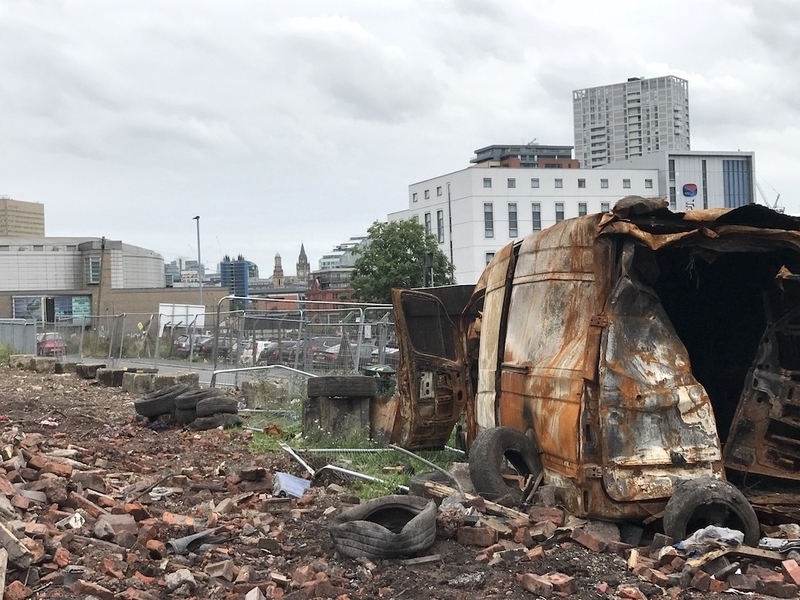
In amongst these overdue plans still sits the long shadow of Strangeways Prison, formally known as HMP Manchester, with the BBC reporting back in December last year on Cllr Craig's calls for the Ministry of Justice to relocate the 750-man prison to elsewhere in the region.
The MoJ however said there were "no plans to close or relocate" the jail.
While the announcement by both councils should create a sense of hope about the future of one of the city's most maligned and undermined areas, only time will tell. And 10 years is a long time.





